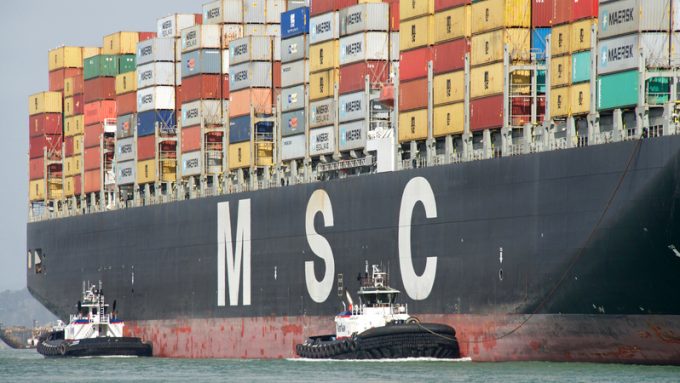Discover your all-in-one digital freight platform
Escape the chaos of calls, faxes, and endless emails. Step into a connected world where suppliers, shippers, customs, ports, and more unite on a single platform for seamless, contextual collaboration
Being an IATA accredited agent we have access to over 121 airlines, this includes scheduled freighters and passenger aircrafts.
With our LCL service, you can ship as little or as much as you like, weekly consoles are our business and get you yours.
We provide comprehensive road freight services, covering both Less-Than-Truckload (LTL) and Full-Truckload (FTL) options.
To meet your requirements we have access to vehicles of all sizes from small vans to artic with 24/7 availability and live tracking.
Escape the chaos of calls, faxes, and endless emails. Step into a connected world where suppliers, shippers, customs, ports, and more unite on a single platform for seamless, contextual collaboration
Our solutions are tailored to fit your business and its unique workflows, offering real-time order tracking from placement to delivery. Stay informed with up-to-date order statuses, track progress, and receive timely notifications for key milestones, whether shipping by air, sea, or road.

For packages requiring urgent delivery that can be achieved by road to destinations in the UK or mainland Europe, you can rely on Intercargo to deliver direct in the fastest time possible.

Get to know more about values, knowledge and experience, quickly download our company profile.


MSC fleet now 900 vessels-strong
After taking delivery of the 16,000 teu MSC Germany this week, Swiss-headquartered carrier MSC broke another record by becoming the first container line to reach 900 ships in its fleet. According to Alphaliner, the world's largest shipping line's total fleet capacity, including those of its subsidiaries, now amounts to 6.47m teu, around 2m teu ahead of second-placed Maersk Line. "The MSC Group fleet, which also comprises ships of the Aponte-controlled carriers Medlog, Log-In Logistica, and WEC Lines, now consists of 609 owned ...
Source: theloadstar.com
Read more
Accelya launches AI-driven FLX ONE Cargo platform
Aviation software provider Accelya has launched FLX ONE Cargo: an open, AI-driven, cloud-native platform that digitalises air cargo management from offer to settlement. FLX ONE Cargo enables airlines to replace legacy systems with an intuitive, intelligent and retail-ready platform that supports every stage of the air cargo lifecycle and enables real-time operations and seamless collaboration. The platform is built with an API-first architecture and aligns with IATA standards, including ONE Record. Powered by AI and machine learning, and running on the AWS Cloud, FLX ONE Cargo achieves significantly higher prediction accuracy. This facilitates better capacity planning, improved overbooking strategies, and higher utilisation of cargo space, while reducing costs and minimising leakages, Accelya said, adding: "It also helps carriers deliver more responsive, customer-centric, persona-driven user experiences with real-time visibility, faster booking-to-delivery cycles, and AI-enabled workflow automation." Tim Reiz, chief product and technology officer at Accelya, said the launch of FLX ONE Cargo marks "a significant step forward" for the air cargo industry. He explained: "Airlines can no longer scale on legacy infrastructure -- and the market won't wait for them to catch up. With FLX ONE Cargo, we're launching a modern, open and modular platform built for real-time operations, AI-powered intelligence, and full offer-to-settle transformation. "Backed by decades of experience and a track record of supporting over 30% of global air cargo, we're uniquely positioned to help airlines future-proof their cargo business and succeed in an increasingly digital and competitive market."
Source: aircargonews.net
Read more
IATA maintains positive cargo outlook
IATA is maintaining a positive air cargo forecast and has stressed the majority of global trade is currently unaffected by the latest emerging tariff war. The US only accounts for 13% of global imports and potentially redirected trade flows as a result of tariffs could create new markets, pointed out IATA's senior economist policy analysis Maja Marciniak, during the IATA World Cargo Symposium (WCS). Speaking during the Sustainability and Economic Outlook session, Marciniak said: "87% of global trade is unaffected by tariffs. There are opportunities for new markets." Highlighting the scope of this opportunity, Marciniak said: "72.5m tonnes of freight are forecast to be handled by air in 2025." Looking at the current air cargo landscape, she said air cargo has slowed down in recent months, but this is not an alarming change. "There has been some slowing down in the last few months, although a lot of that is related to seasonality and the slowing down of activity following the Christmas period. "Of course, we also see a big drop in the actual values for February, but that is also very much dependant on the fact that February is a shorter month so that's not something we should focus on too much." Speaking about the outlook for air cargo, she said that overall, IATA expected a 6% growth in global cargo tonne-kilometres (CTKs). Growth is strong across all regions, with the Middle East expected to top the regions at 7.5% this year, although the risks to growth have increased. Yields are also in a stable position and in 2024 increased over 2019, but figures should be viewed in the context of inflation, Marciniak said. "It seems like a solid increase," but, she added: "We do have to remember that we have been through a phase of really high inflation. "So while the yields have grown by 38% cumulatively over this period, the growth in terms of the inflation that we saw in parallel was around 33% cumulatively. "So yes, the yields have outpaced inflation, but it's not that the yields have grown 40% on their own." Growth in yields and CTKs is promising for revenue, which is predicted by IATA to grow at 5.4% year on year. Following the post-pandemic high, revenue growth trailed off, but there has actually been growth since 2023 that has resulted in higher revenue than in 2019, IATA's data shows. But Marciniak pointed out that part of the higher revenue will have to be directed towards efforts to achieve net zero emissions by 2050. Positive economic signs There are some key positive economic indicators for air cargo, added Marciniak. While there are large regional variations in economic growth, Asia and developing markets are leading GDP growth, supported by verticals such as e-commerce. Low employment levels are key to more spending power per person, fuelling consumption and therefore air cargo demand. Meanwhile, jet fuel prices, which peaked in 2022 driven by the Russia-Ukraine war, have also decreased and this helps lower operational costs. However, there is high volatility in fuel prices. Plus, globalisation has increased cross-regional demand, upping the distances that air cargo shipments need to travel. However, major risks to air cargo growth include geopolitical tensions and a global trade war and these risks are higher than what they were six months ago, emphasised Marciniak. Uncertainty has resulted in businesses becoming more cautious and slowing down their activities and there will likely be some direct impacts of tariffs on air cargo, she said. "No matter where we end up with the tariffs and what actually gets introduced and passed through, there will already be some slowing down impact as businesses just sit back and wait for a moment figuring out what their next step should be. "It's not only that we are looking at high tariffs, but we're also looking at a high percentage of goods being subject to tariffs." Marciniak added: "The air cargo industry will definitely see some direct impacts." These could include a reduction in trade flows due to price increases, changes to trade flows, customs processing delays, or an increase in aircraft prices that impacts financial performance.
Source: aircargonews.net
Read more

This website uses cookies and similar technologies, (hereafter “technologies”), which enable us, for example, to determine how frequently our internet pages are visited, the number of visitors, to configure our offers for maximum convenience and efficiency and to support our marketing efforts. These technologies incorporate data transfers to third-party providers based in countries without an adequate level of data protection (e. g. United States). For further information, including the processing of data by third-party providers and the possibility of revoking your consent at any time, please see your settings under “Consent Preferences” and our